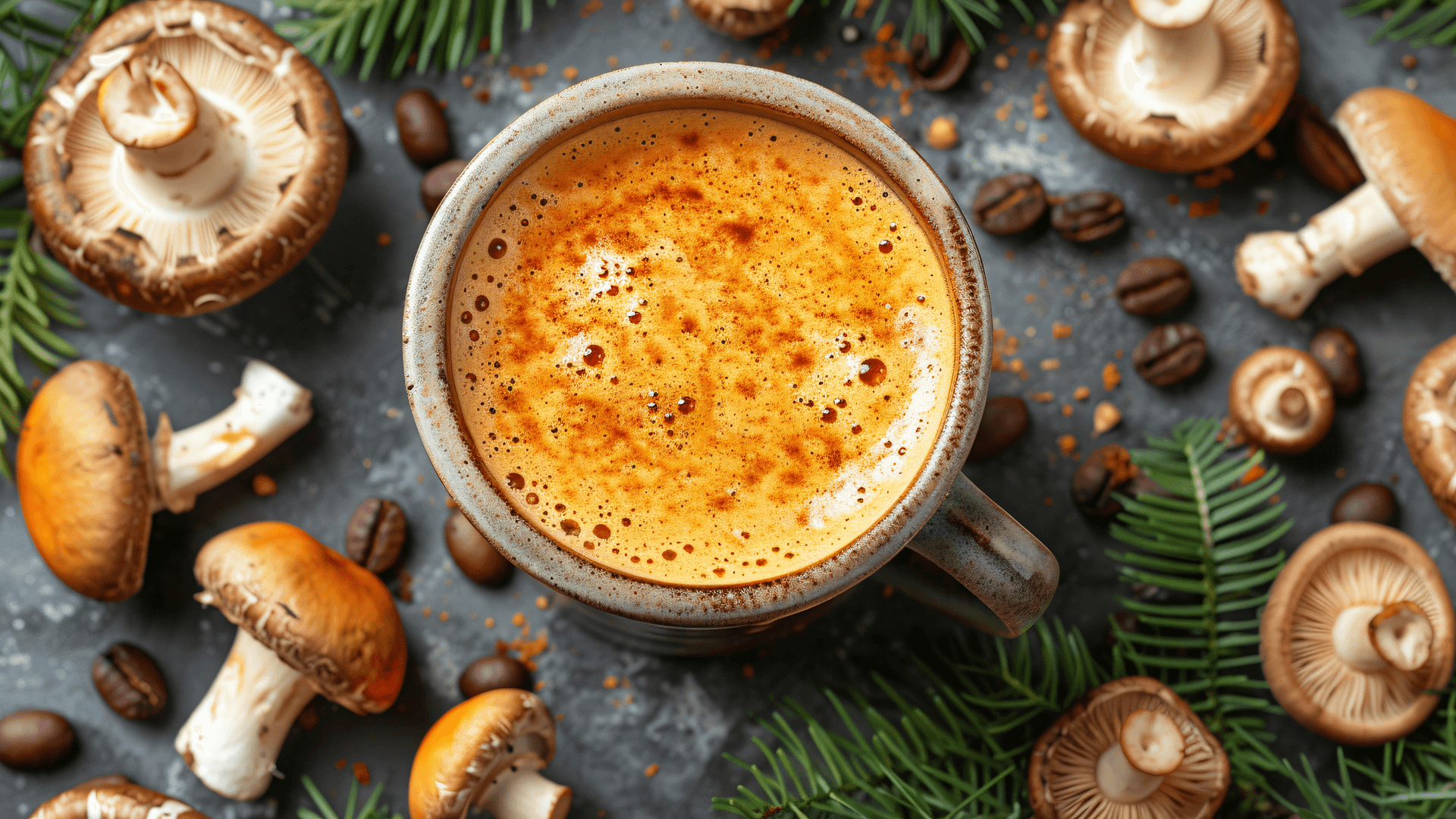Supercharge your day
What is TestosteroneWhat are Normal Testosterone Levels
Veganism and Testosterone
What Other Lifestyle Factors Impact Testosterone
With the rise in popularity of plant-based diets, more and more men are questioning whether they can maintain or improve their testosterone levels with a vegan lifestyle.
Testosterone plays a crucial role in a man's overall health and well-being, impacting everything from muscle mass to endurance and sex drive.
In this article, we’ll explore the connection between a plant-based diet and testosterone levels, providing insights and guidance for those considering or currently following a vegan lifestyle.
What is Testosterone?
Testosterone is an androgen hormone produced in both male and female humans and animals.
In males, it is produced primarily in the testes. It’s also produced by women but in much smaller amounts in the ovaries.
Testosterone is an important hormone for male health and wellbeing and plays a pivotal role in the production of sperm - a process known as spermatogenesis. It also regulates sex drive.
Testosterone aids in the development and maintenance of male reproductive tissues and of secondary sexual characteristics, things like muscle growth, bone growth, the deepening of the voice and the growth of facial and pubic hair.
Is testosterone a steroid?
Yes, testosterone is a type of steroid hormone.
When people talk about “anabolic steroids,” they are usually referring to synthetic versions of testosterone made in labs and injected into the body to gain faster and larger results than training alone will get.

Healthcare providers use this type of drug to treat certain medical conditions like erectile dysfunction and hypogonadism.
What Are Normal Testosterone Levels?
Levels can vary in individuals, but there is actually a normal range of testosterone levels in men considered to be between 300 and 1,000 nanograms per deciliter (ng/dL).
The Physical Impact of Low Testosterone
For men, low testosterone levels can display themselves in a myriad of ways.
These are:
- Decreased energy
- Lowered sex drive
- Irritability
- Loss of body hair
- Reduction in bone mass
- Shrunken testicles
- Weight gain
- Swollen breasts
If you are concerned about your testosterone levels, always head to a healthcare professional to discuss your worries before you make any lifestyle or diet changes who can give you the appropriate medical advice and/or the necessary tests moving forward.
But outside of a medical setting, the good news is that through a balanced, nutritious diet, exercise and a shake-up of lifestyle factors, the body can gradually increase testosterone levels.
Veganism and Testosterone
Let’s talk specifically about a vegan diet and its relationship with testosterone.
Can a vegan diet impact testosterone levels?
This is a big topic of debate right now, with some studies suggesting that a vegan diet may potentially impact testosterone levels.
Several studies have looked into the possible impact of a plant-based diet on testosterone. One particular study found that plant-based food diets are not associated with serum testosterone levels meaning that there is no correlation between testosterone levels and a vegan diet.

Another study observed a vegan diet is associated with a small but significant increase in sex-hormone-binding globulin and testosterone contractions compared to meat eaters.
It depends on where you look, who you talk to and which studies you read.
The Soy Isoflavones Myth
Let’s take a look at a longstanding myth regarding soy and its effects on men.
Those following a vegan diet often consume soy as part of their daily meals.
Isoflavones are a naturally occurring phytoestrogen which means they are plant-derived compounds with a similar chemical structure to estrogen and as a result, have estrogen-like effects on the body.
They can be found in legumes, soybeans and various other plant sources.
Soy isoflavones specifically refer to the type of isoflavones found in soy products and soybeans.
Soy has been approached with caution for men who fear its alleged estrogen-like effects on the body.
But studies such as this one in Fertility and Sterility conclude that regardless of age, soy protein and isoflavones don’t affect testosterone levels in men.
What can you eat on a vegan diet to keep testosterone levels high?
You can eat many things with a vegan diet to keep your testosterone levels high.
Let’s start with the vitamins you need to concentrate on.
Foods High in Zinc
Concentrate on food high in zinc, such as nuts, lentils and beans to increase your zinc levels.
Zinc helps to break down food and other nutrients and also synthesizes proteins which are a main component in the production of testosterone.
Foods High in B6
Eat cereals, chickpeas, leafy, dark vegetables, bananas and oranges to keep those B6 levels sufficient.
Some of the main symptoms of low testosterone can be combated by keeping B6 levels up.
Vitamin D
Getting enough vitamin D through natural exposure outside or through supplementation is important for testosterone production.
Some studies have explored the link between the two, with one particular study suggesting an association between testosterone levels and vitamin levels in men.
Garlic
Whilst it’s not everyone's friend, garlic contains an active ingredient called allicin that is said to boost testosterone levels.
Ginger
Interestingly, ginger contains compounds like gingerols and zingerone, which are antioxidants that protect the testes from oxidative damage - helping to enhance testosterone production.
Supplements
Sometimes doing your best to eat well doesn’t always hit all the nutrient boxes you need.
And while getting your vitamins and minerals through food is the best option, supplements can be an effective alternative.
For those looking to maintain their testosterone levels on a vegan diet, supplements containing vitamin D, B12, B6 and Zinc should be high on your list.
Can you have optimal testosterone levels and be vegan?
Absolutely.
As you have seen from the evidence, a vegan diet does not negatively impact your testosterone levels, and it is possible to have optimal testosterone levels and be vegan.
Eating vegan does require planning, be it a nutrient and mineral tick list, meal planning or meal prepping, but once you get into a routine, it will become second nature.
It is worth noting, too, that it isn’t all down to diet.
What Other Lifestyle Factors Impact Testosterone Levels?
It’s not just diet; there are other factors that impact your testosterone levels…
1. Alcohol
Alcohol is a big one.

With excessive drinking in men comes a drop in testosterone levels and additional long-term health problems such as depression, erectile dysfunction, infertility and a heightened risk of congenital disabilities and prostate cancer.
One study found a short-term effect of alcohol consumption is a rapid drop in testosterone levels - within 30 minutes.
Heavy Alcohol consumption has a big effect on testosterone levels, with regularly consuming more than 15 drinks a week being associated with a drop in levels, erectile dysfunction and low libido.
Decreasing the amount you drink is a fast and effective way to improve testosterone levels.
2. Smoking
Smoking may lower testosterone levels as nicotine can act like estrogen on the brain, potentially disrupting the regulation of testosterone.
By cutting down on cigarettes or stopping completely, the body can detox and adjust to being without nicotine, beginning to normalize hormone levels again.
3. Age
This is a big one and, ironically, the one that can’t be controlled through changes to lifestyle.
As men age, testosterone levels naturally decrease. From age 35, testosterone declines by nearly 2% every year.

All the more reason to get those lifestyle factors in order.
4. Chronic Illnesses
Unfortunately, there are certain medical conditions that affect testosterone production, like kidney disease, diabetes, liver disease and HIV/AIDS.
5. Obesity
Excess body fat can lead to testosterone converting it into estrogen.
Shedding weight through a healthy, balanced diet and exercise can help you get on the way to healthier and more regulated testosterone levels.
6. Sleep Deprivation
It may not be something you think about much, but not getting enough sleep can lower testosterone levels.

Working on your sleep hygiene and trying to get 7-8 hours of sleep a night is a good way to approach this.
7. Stress
This is often a factor that flies under the radar for men with a busy life and a ton of responsibilities, but chronic stress can disrupt hormone production.
Talking about your problems, exercising, sleeping well and eating well are all ways to help combat stress in your life.
Overall, there may be some variations in testosterone levels based on diet, but factors such as maintaining a healthy weight, getting enough exercise, sleeping well and reducing stress are likely to have a much greater impact on maintaining optimal testosterone levels.
For those who want a little extra hand on their journey without killing themselves at the gym, seeing a doctor or getting an expensive injection, trying all-natural testosterone supplements is a simple way to tackle things head-on.





